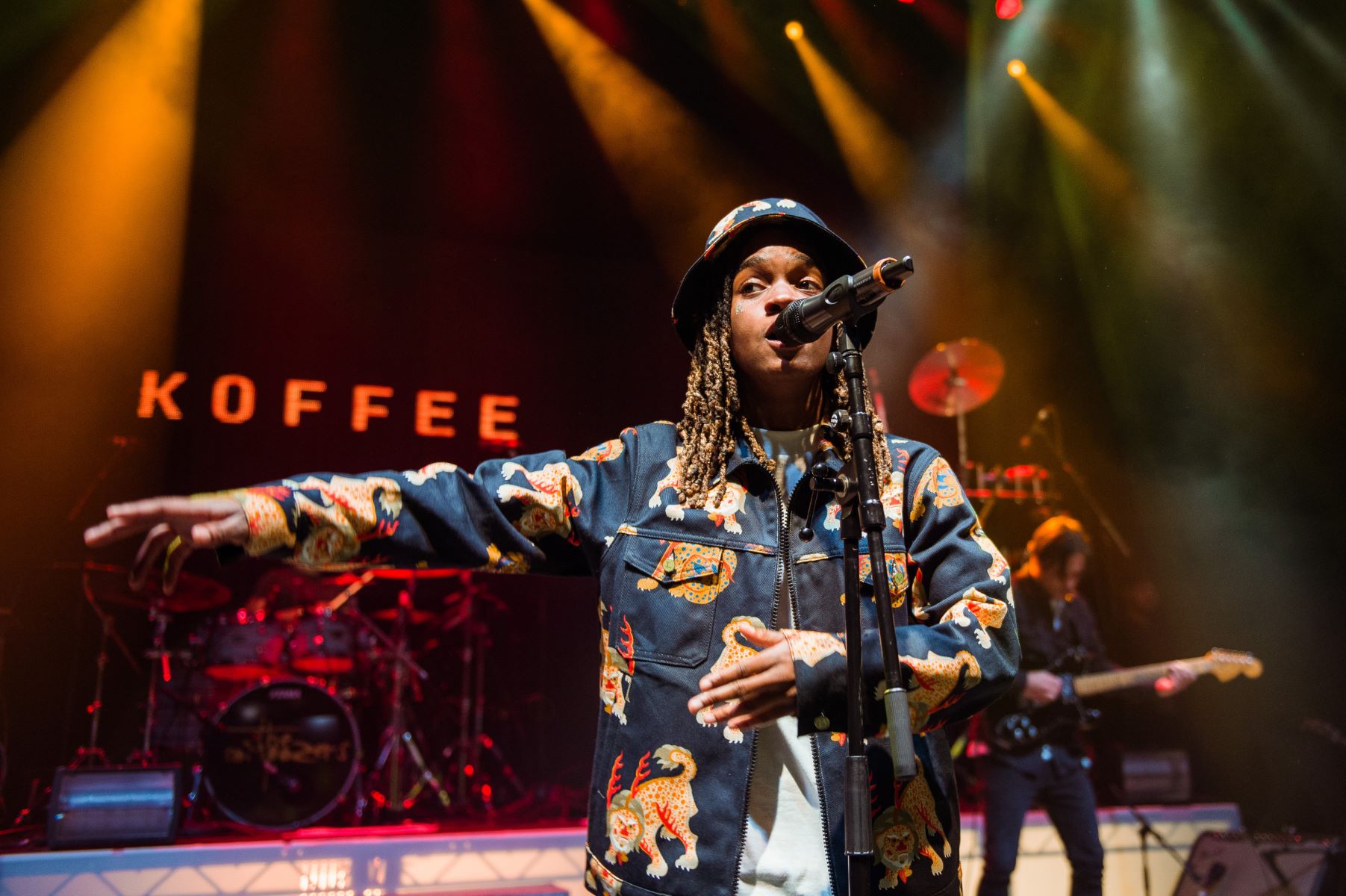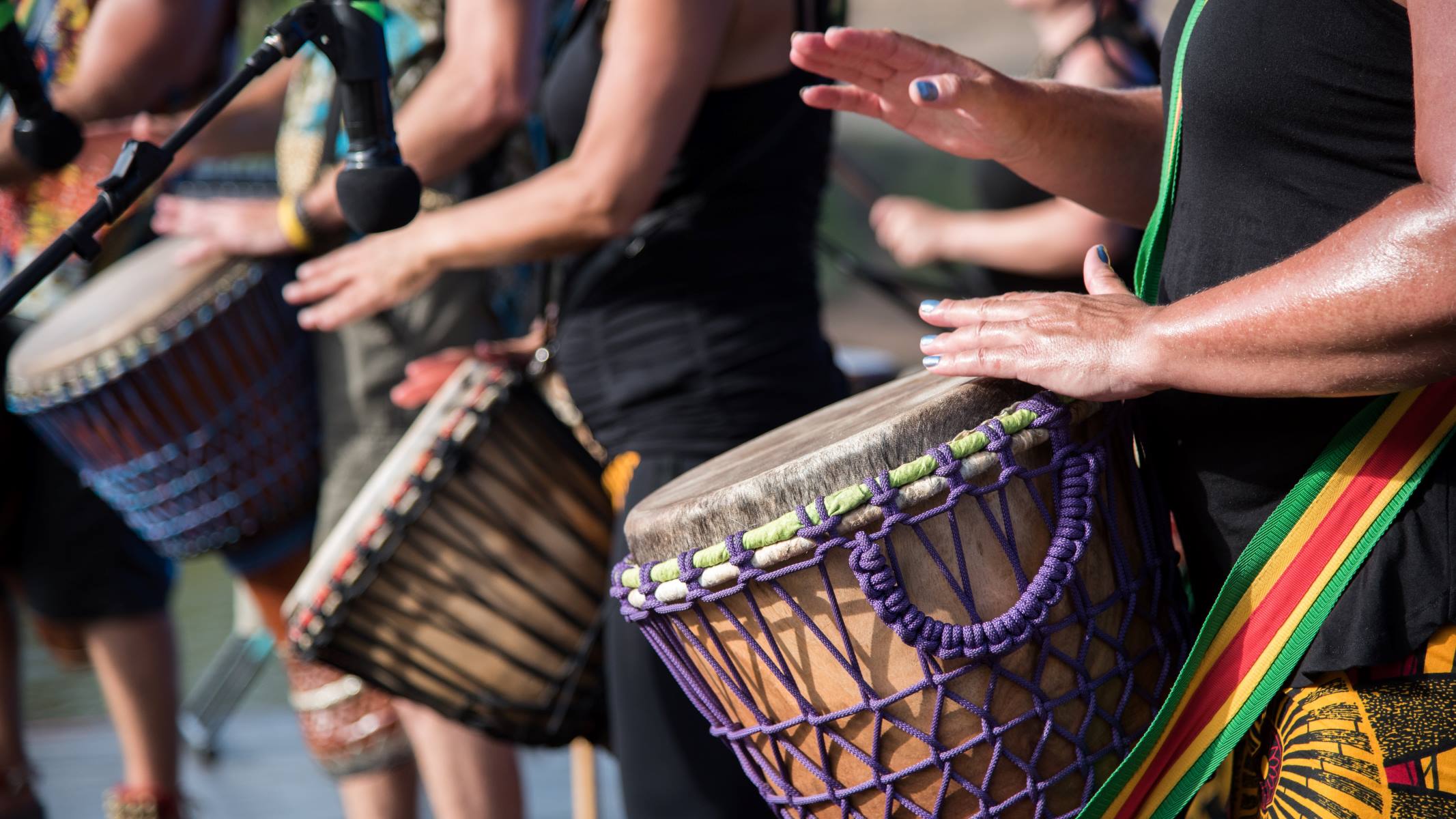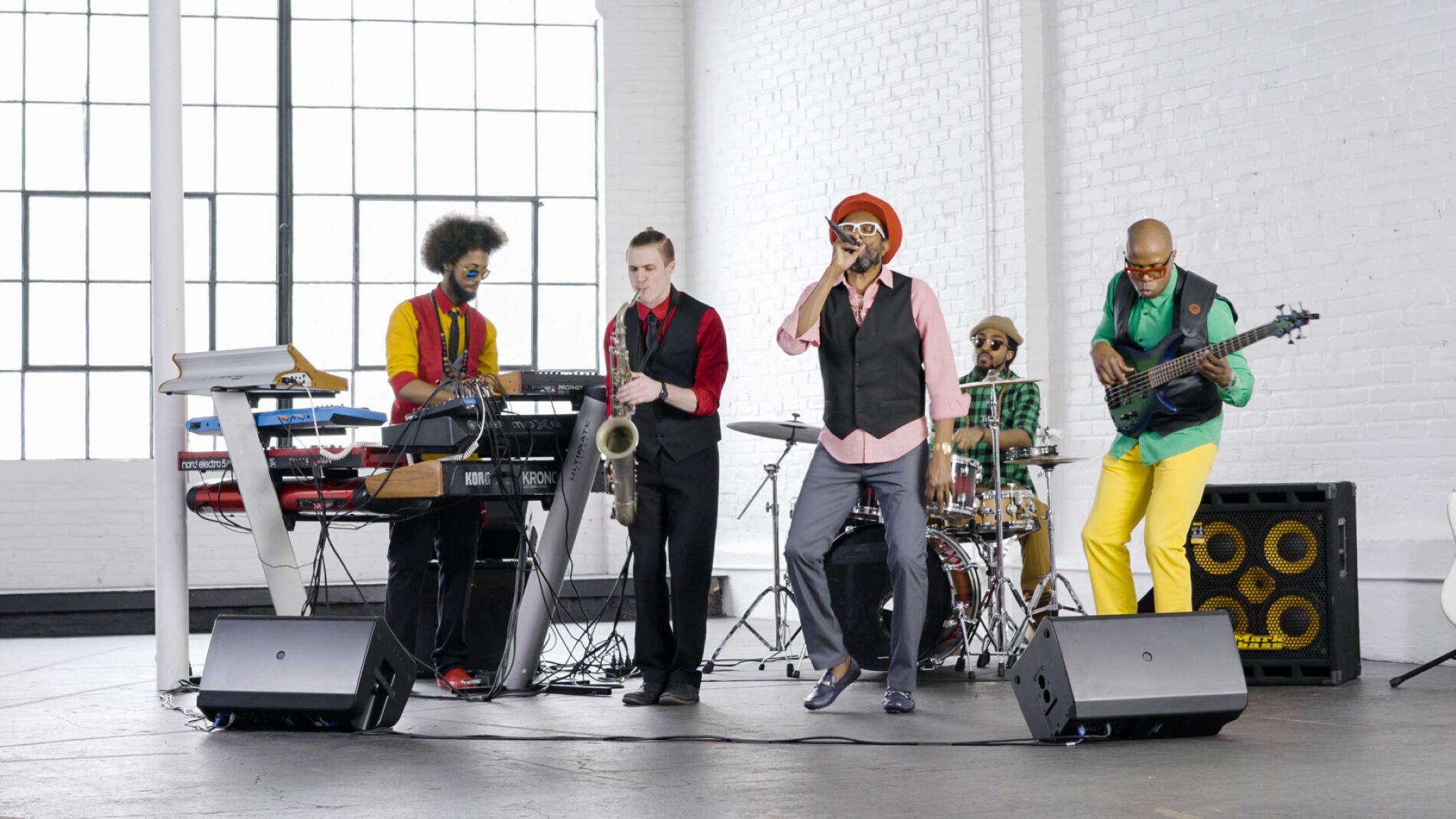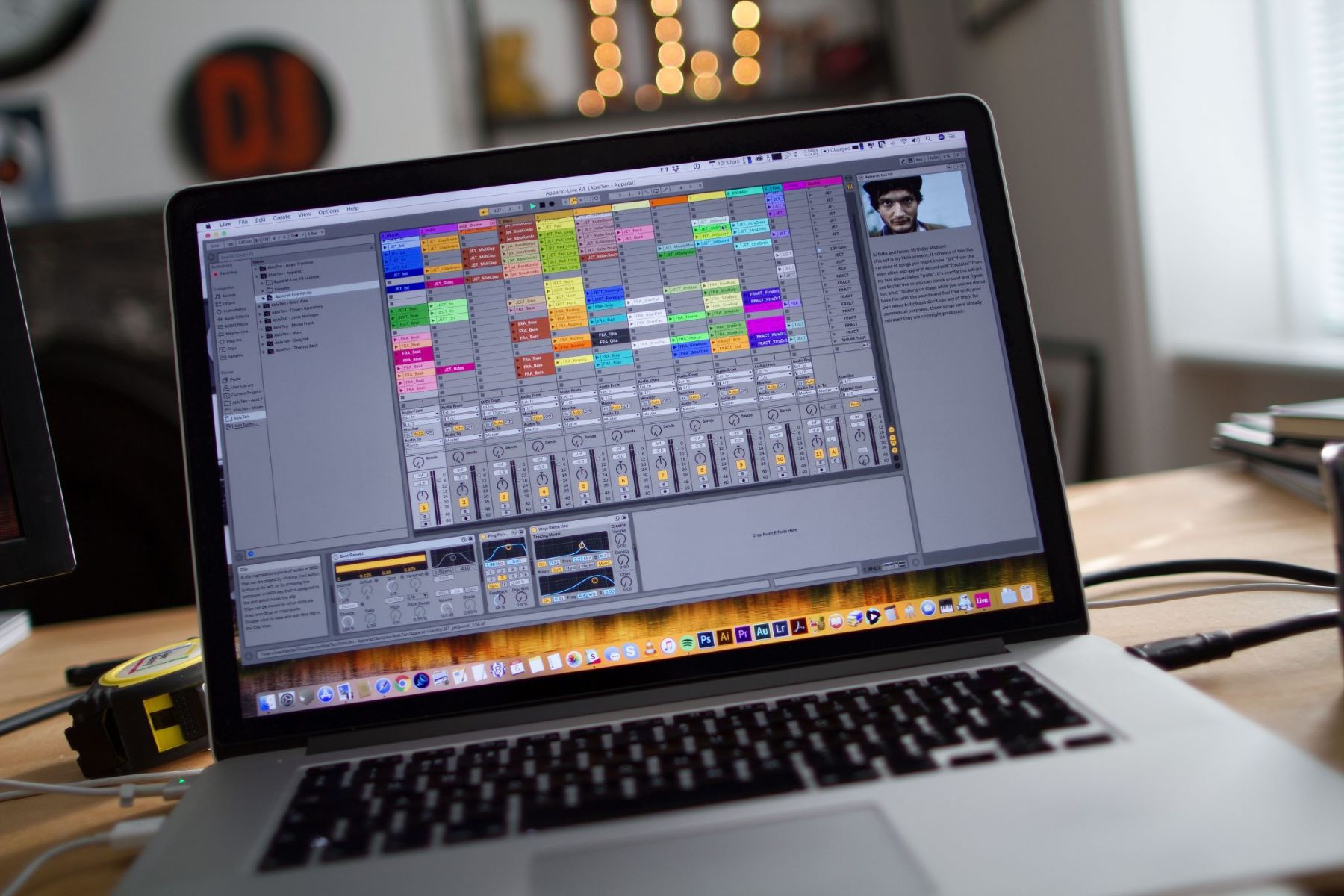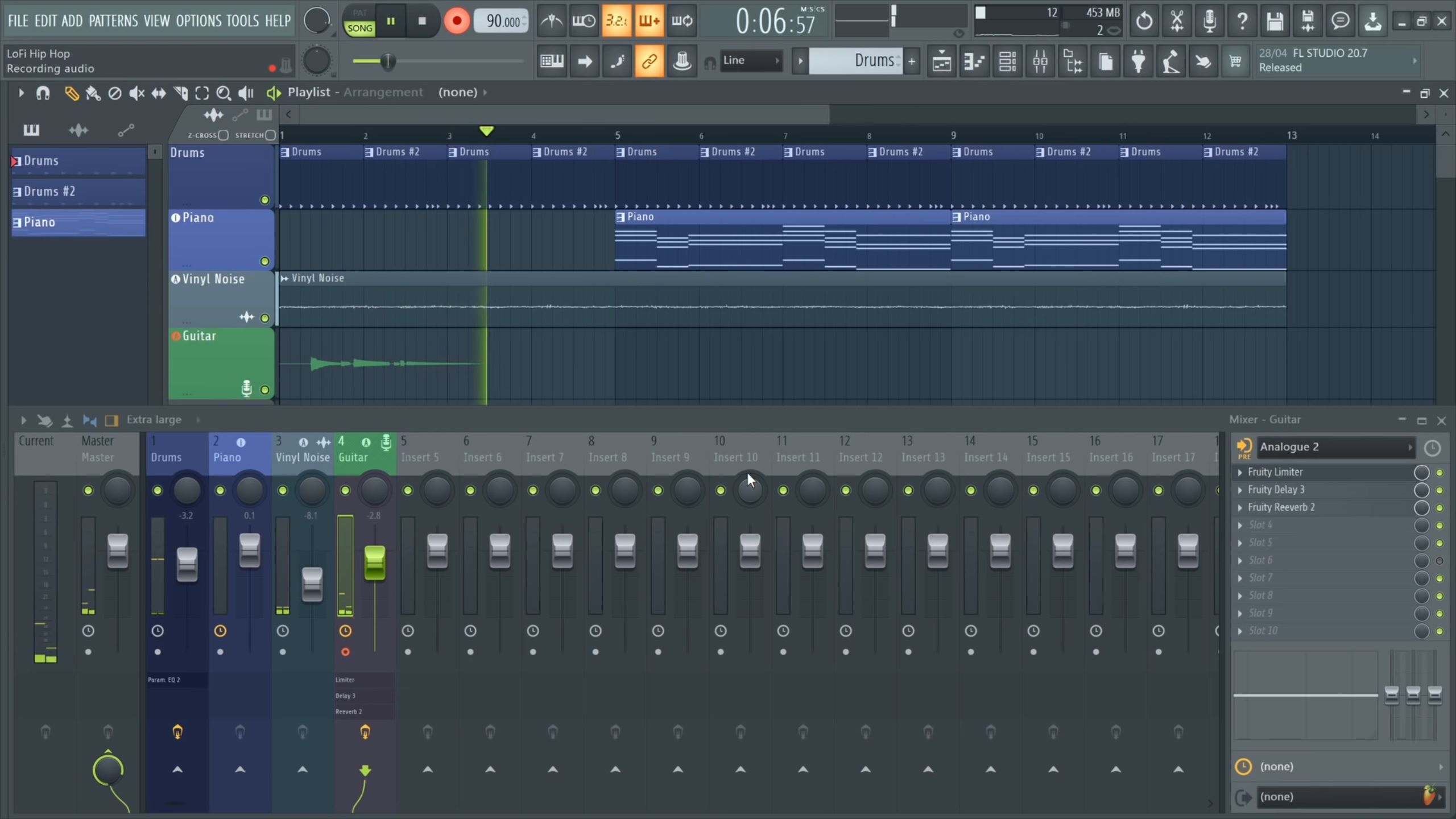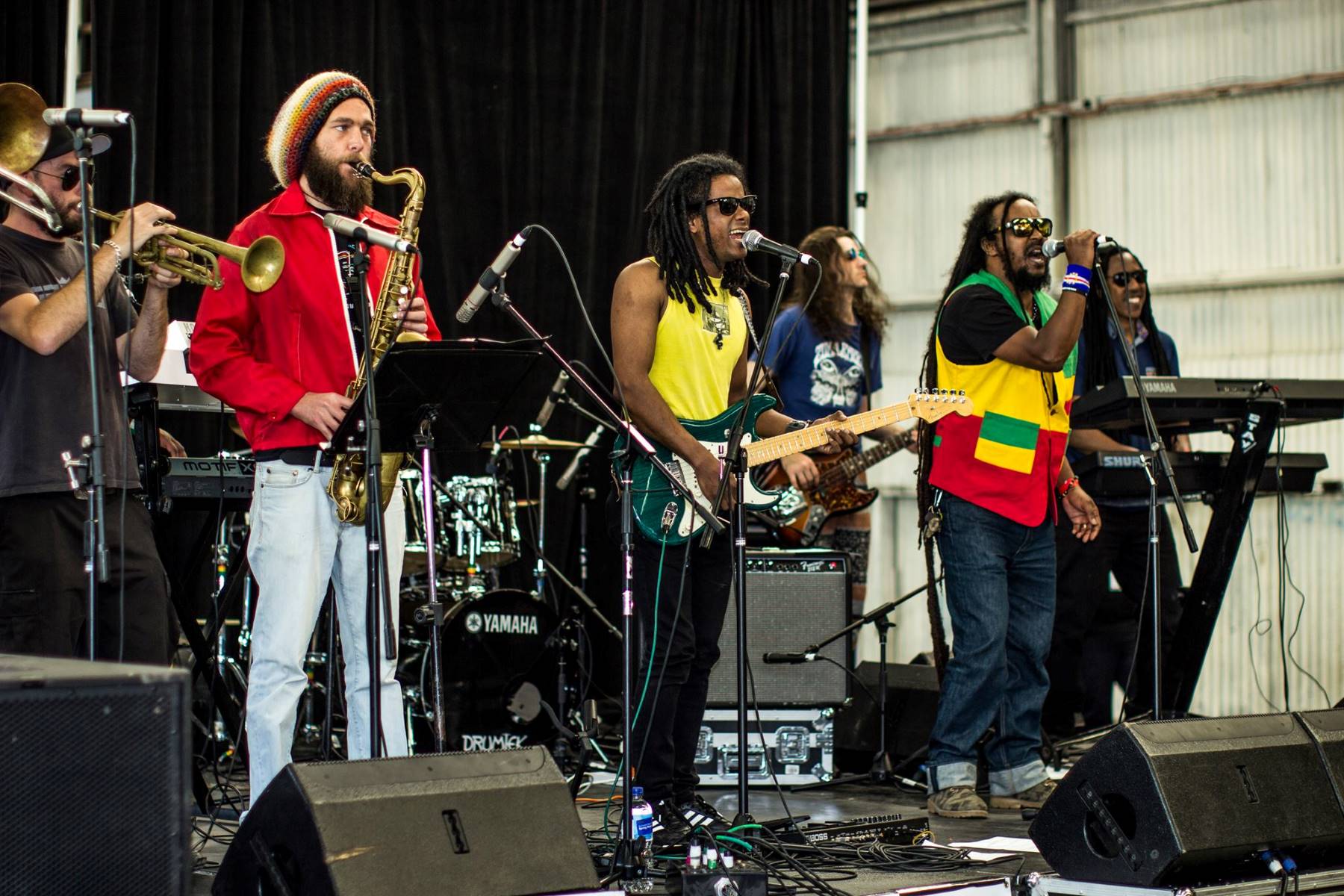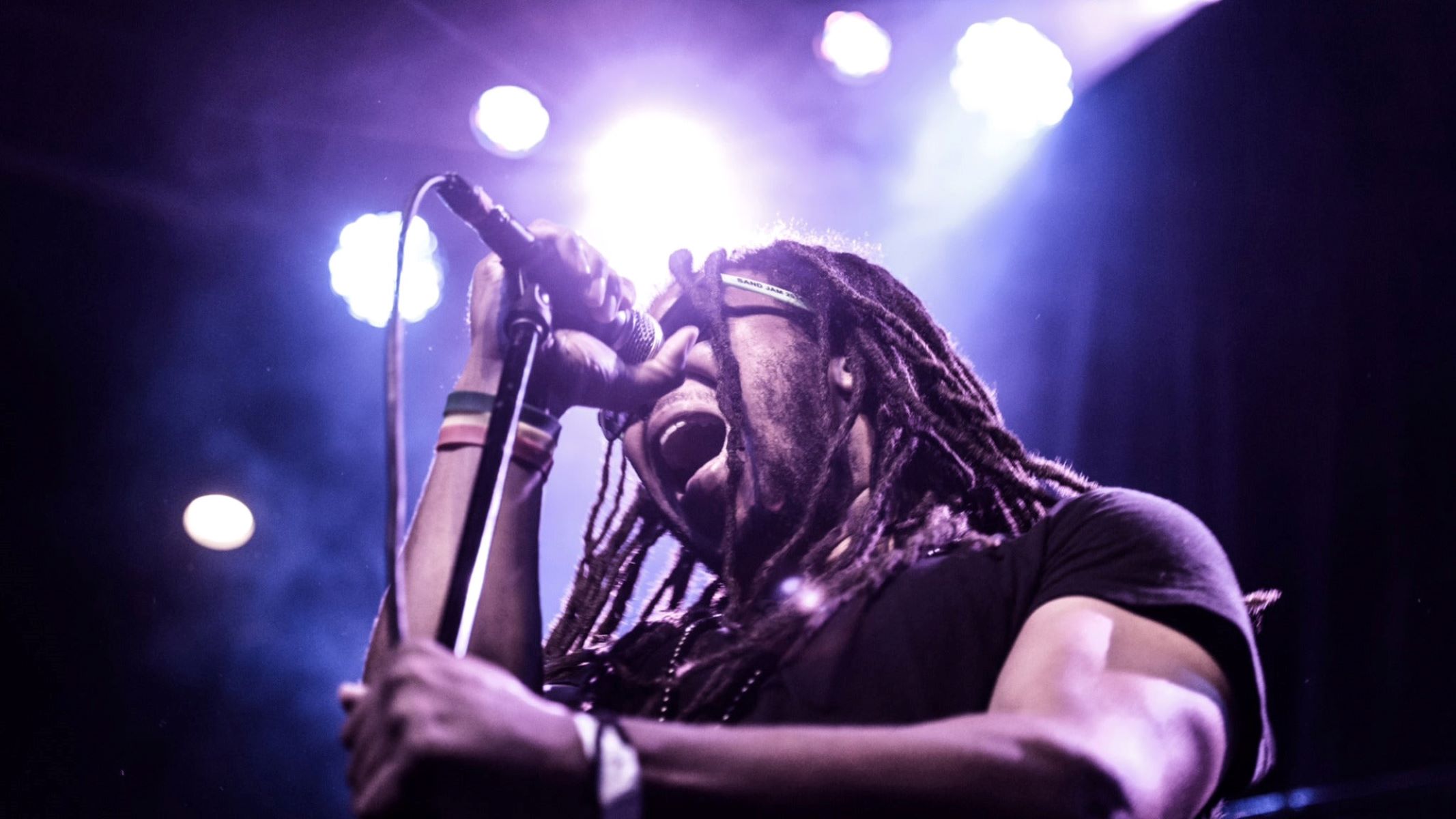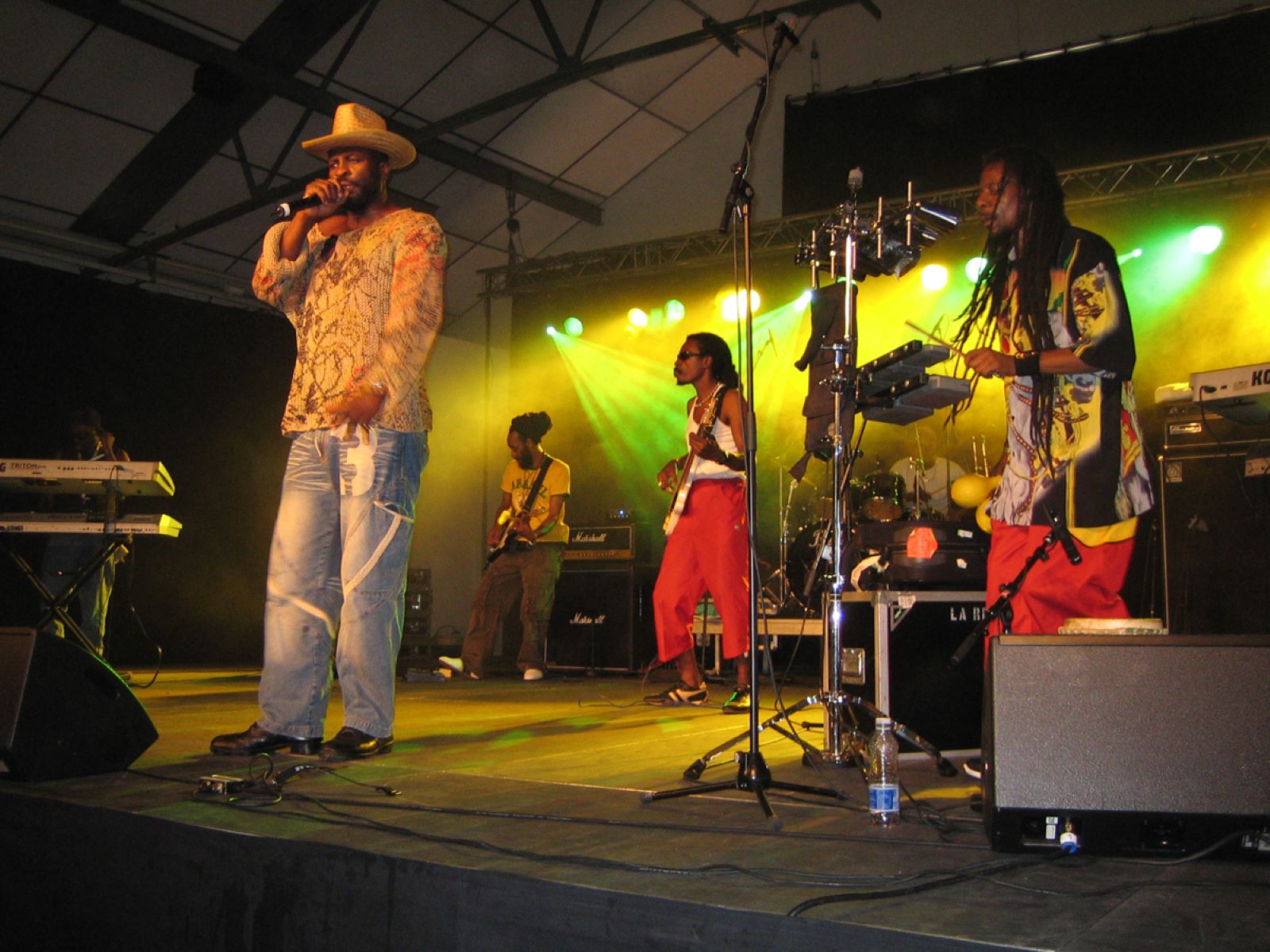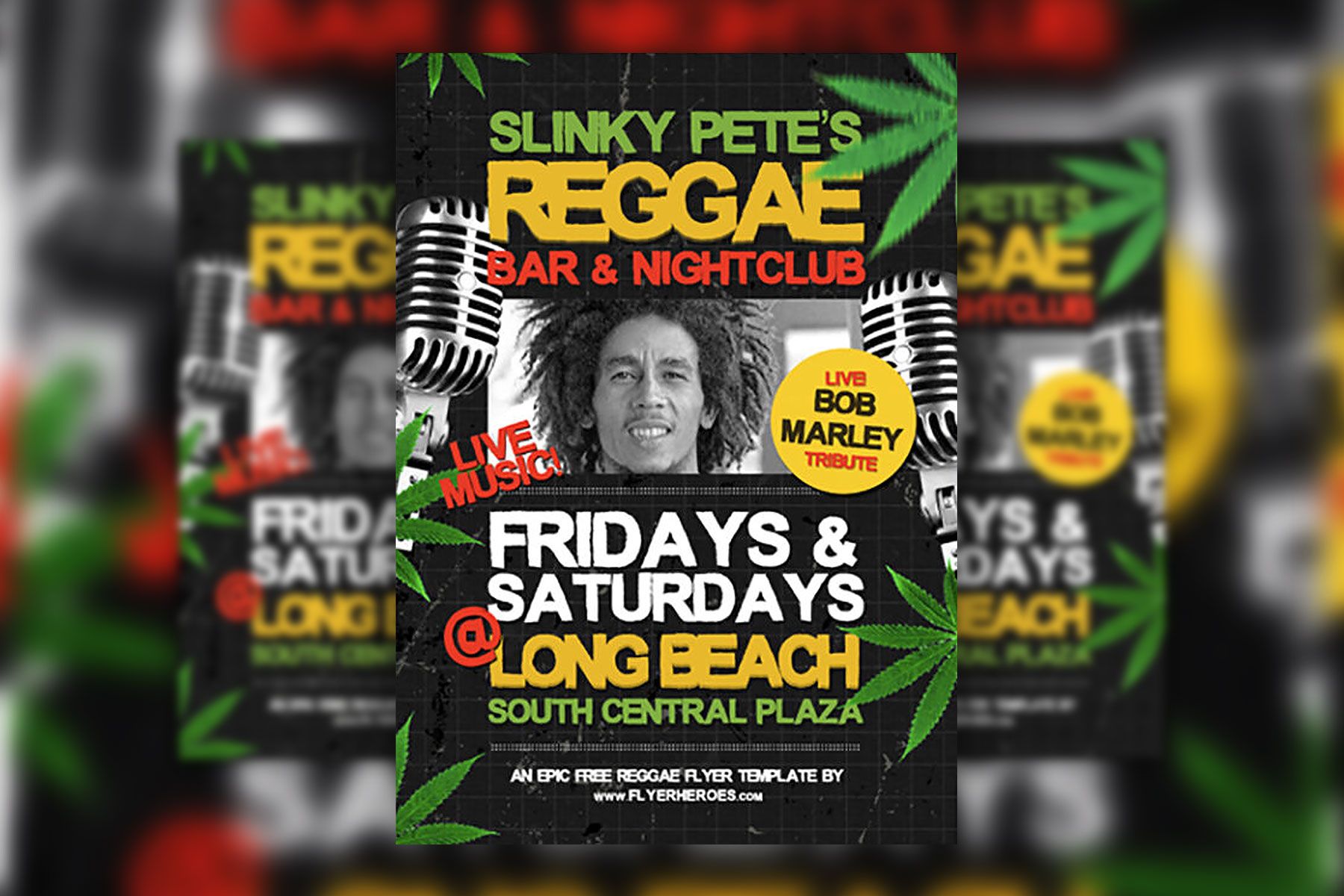Home>Genres>Reggae>How Is Reggae Representative Of The Global Culture
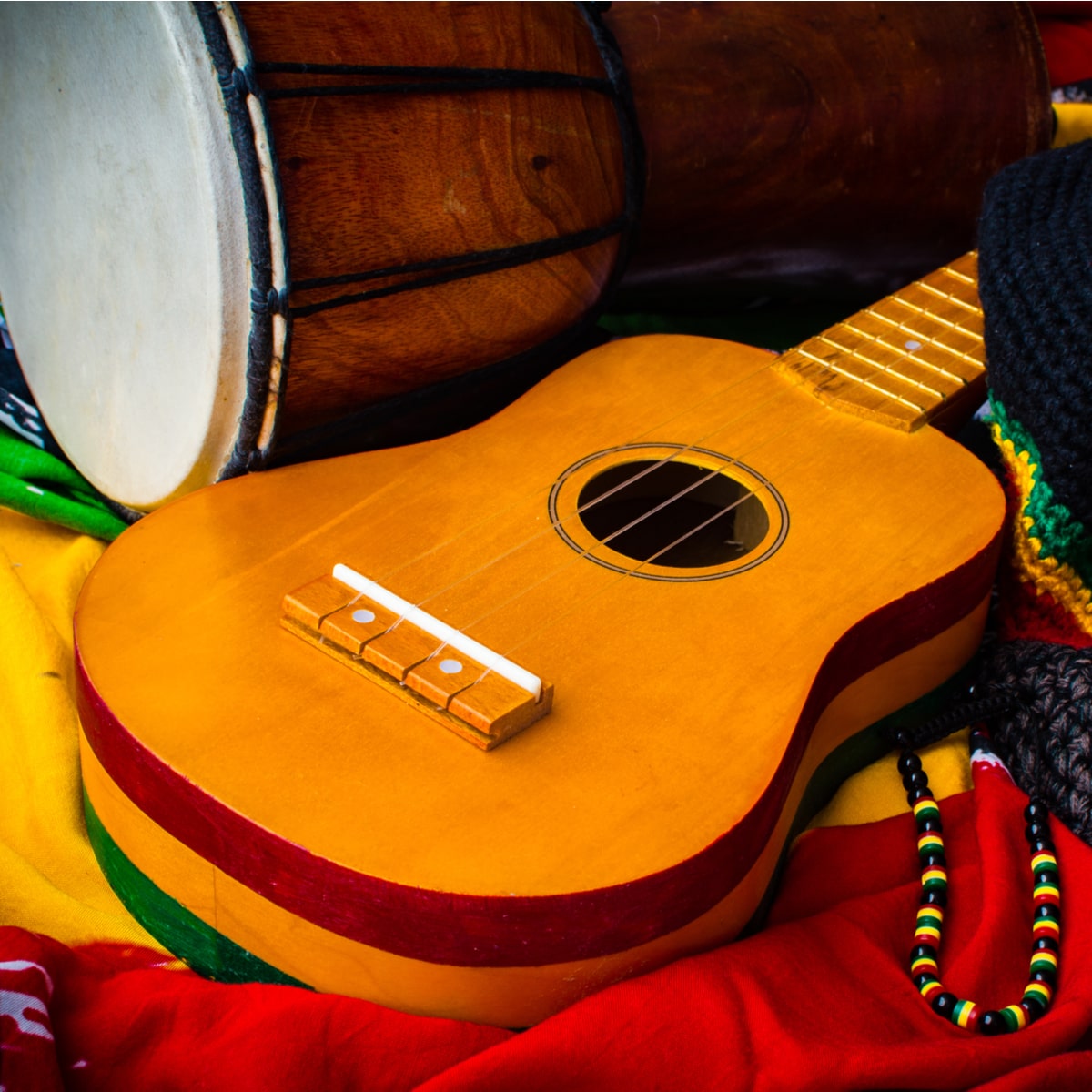

Reggae
How Is Reggae Representative Of The Global Culture
Modified: February 18, 2024
Discover how reggae music serves as a symbol of global culture, capturing its essence and spreading its message of unity and empowerment. Embrace the rhythmic beats and soulful melodies that define the reggae genre.
(Many of the links in this article redirect to a specific reviewed product. Your purchase of these products through affiliate links helps to generate commission for AudioLover.com, at no extra cost. Learn more)
Table of Contents
Introduction
Reggae music is more than just a genre; it is a cultural movement that originated in the Caribbean island of Jamaica in the late 1960s. With its distinctive beats, soulful melodies, and socially conscious lyrics, reggae has become a powerful force that has captivated audiences around the world.
At its core, reggae music is rooted in the experiences and struggles of the Jamaican people. It emerged as a form of expression for the marginalized and oppressed, giving voice to their aspirations and grievances. This music genre was heavily influenced by various musical styles, including ska, rocksteady, and mento.
However, reggae is not just limited to the shores of Jamaica. It has transcended boundaries and has become representative of global culture. Its profound impact can be felt in different aspects of our lives, from music and fashion to social movements and the quest for peace and unity.
In this article, we will explore the origins of reggae, the influence of Jamaican culture, the global spread of reggae music, its role in social movements, its impact on the global music scene, reggae festivals and events worldwide, its contribution to promoting peace and unity, and its influence on fashion and style.
Join us on this journey as we delve into the vibrant world of reggae and discover how it has become a symbol of cultural diversity and unity.
Origins of Reggae
The roots of reggae can be traced back to the 1960s in Jamaica, where it emerged as a fusion of various musical styles such as ska, rocksteady, and mento. The term “reggae” itself is believed to have originated from the Jamaican slang word “rege-rege,” which means ragged or unruly.
Reggae music was born out of the socio-political climate of Jamaica at that time. The lyrics of early reggae songs often addressed social issues, poverty, and inequality, giving voice to the struggles of the Jamaican people. The music served as a form of cultural and political protest against the system of oppression and injustice.
One of the pioneers and key figures in the development of reggae was the legendary musician Bob Marley. With his distinctive voice and powerful lyrics, Bob Marley brought reggae music to the international stage and became its global ambassador.
Reggae music is characterized by its distinctive rhythmic patterns, usually featuring offbeat accents, syncopated rhythms, and a deep bassline. The use of guitars, keyboards, horns, and drums creates a unique and infectious sound that is instantly recognizable.
The lyrical content of reggae songs often focuses on themes of love, spirituality, social justice, and unity. Many reggae artists aim to spread positive messages and uplift their listeners, inspiring them to create change and embrace a more conscious way of living.
In addition to Bob Marley, other notable reggae artists who have contributed to the genre’s development and popularity include Peter Tosh, Jimmy Cliff, Toots and the Maytals, and Burning Spear.
Today, reggae continues to evolve and blend with other genres, creating subgenres such as dancehall, reggae fusion, and reggaeton. It has become a global phenomenon, capturing the hearts of people from all walks of life and transcending cultural boundaries.
Influence of Jamaican Culture
Jamaican culture has had a profound influence on the development and evolution of reggae music. The vibrant and rich cultural heritage of the island nation has shaped the sound, themes, and style of reggae, making it uniquely Jamaican.
One of the key aspects of Jamaican culture that has influenced reggae is the Rastafarian movement. Rastafarianism emerged in Jamaica in the 1930s and is deeply intertwined with reggae music. Rastafarian beliefs, which include the worship of Ethiopian Emperor Haile Selassie as the messiah and the embracing of a natural lifestyle, are often reflected in the lyrics of reggae songs. The Rastafarian influence can be seen not only in the spiritual and social themes of reggae music but also in the iconic dreadlocks hairstyle and red, gold, and green colors associated with the movement.
Jamaican Patois, a colorful and rhythmic dialect spoken on the island, has also had a significant impact on reggae music. Many reggae songs incorporate Patois lyrics, giving them an authentic Jamaican flavor. The distinct vocal delivery and lyrical expressions in Patois add another layer of cultural authenticity to reggae music.
Jamaican cuisine, known for its bold flavors and unique blend of African, European, and Indian influences, has also played a role in shaping reggae culture. Lyrical references to Jamaican food, such as ackee and saltfish or curry goat, can be found in reggae music, further connecting the genre to Jamaican identity.
The laid-back and infectious energy of Jamaican dancehall culture has also left its mark on reggae music. Dancehall, with its energetic and rhythmic dance moves, has influenced the music and performance style of reggae artists. The infectious beats and catchy melodies of dancehall have found their way into the reggae sound, adding a more up-tempo and party-oriented vibe to the music.
Jamaica’s stunning natural landscapes and the island’s reputation as a tropical paradise have also become iconic symbols associated with reggae culture. Images of palm trees, crystal-clear waters, and lush green mountains often accompany reggae music and evoke a sense of relaxation, freedom, and escape from the troubles of the world.
Overall, Jamaican culture has played a pivotal role in shaping reggae music and giving it a distinct identity. From the spiritual and social messages of the Rastafarian movement to the vibrant language of Patois, Jamaican cuisine, dancehall culture, and the natural beauty of the island itself, the influence of Jamaican culture is deeply ingrained in the DNA of reggae music.
Spread of Reggae Worldwide
Despite its origins in Jamaica, reggae music has spread far beyond the shores of the Caribbean island and has gained a global following. The infectious rhythms, soulful melodies, and powerful messages of reggae have resonated with people from diverse cultures and backgrounds all over the world.
The international popularity of reggae music can be attributed to various factors. One significant factor is the influence of Jamaican immigrants who brought their culture and music with them when they migrated to different countries. Jamaican diaspora communities in the United Kingdom, the United States, Canada, and other parts of the world played a crucial role in spreading reggae to new audiences.
In the 1970s, reggae music started gaining traction internationally, particularly in the United Kingdom. British artists such as UB40 and Steel Pulse embraced reggae and created their unique interpretations of the genre. The influence of Bob Marley and the Wailers cannot be overstated, as their international success helped propel reggae into the mainstream.
With the advent of the internet and digital platforms, reggae music became even more accessible on a global scale. Fans from around the world could connect with and discover reggae artists and songs with just a few clicks. Online streaming services and social media platforms enabled reggae musicians to reach audiences far beyond their geographic locations, contributing to the genre’s worldwide popularity.
Reggae has also found a home in the hearts of artists from other genres. Many mainstream musicians have been influenced by reggae and have incorporated its elements into their own music. From pop stars like Rihanna to rock bands like The Police, the impact and appeal of reggae can be seen in diverse genres of music.
Reggae festivals and events around the world have also played a crucial role in the global spread of reggae. Events like the Rototom Sunsplash in Spain, Reggae Sumfest in Jamaica, and the Bob Marley Birthday Celebration in Ethiopia attract thousands of reggae enthusiasts from around the world. These festivals serve as platforms for both established reggae artists and emerging talents to showcase their music and create a sense of community among reggae lovers.
Today, reggae music continues to thrive in various corners of the globe. From Europe to Africa, Asia to the Americas, reggae has become a universal language that transcends borders and unites people through its uplifting and positive vibrations.
Reggae and Social Movements
Reggae music has long been intertwined with social movements, using its power to amplify voices and promote social change. From its early days in the Jamaican music scene to its global reach today, reggae has served as a medium for protest, cultural expression, and the fight against oppression.
One of the central themes of reggae music is social justice. Reggae musicians often address issues such as poverty, inequality, racial discrimination, and political corruption in their lyrics. The music serves as a platform to shed light on these pressing social issues, inspiring listeners to question the status quo and strive for a more equitable society.
During the 1970s, reggae music played a crucial role in the liberation struggles of countries like Zimbabwe and South Africa. Songs like Bob Marley’s “Zimbabwe” and Peter Tosh’s “Apartheid” became anthems of resistance, rallying international support for the movements fighting against colonialism and apartheid.
In addition to addressing systemic injustices, reggae music has also been a voice for marginalized communities, including the LGBTQ+ community. Artists like Buju Banton, Lady Saw, and Tanya Stephens have used their music to challenge homophobia and advocate for acceptance and equality.
Reggae’s impact on social movements extends beyond the realms of music. The Rastafarian movement, closely associated with reggae, has been at the forefront of social activism in Jamaica and beyond. Rastafarians promote peace, unity, and cultural pride, advocating for equal rights for all and drawing attention to the African diaspora’s history and struggles.
Furthermore, reggae music has been a catalyst for change in various environmental and sustainability movements. Artists like Burning Spear and Steel Pulse have used their music to raise awareness about environmental degradation, climate change, and the importance of protecting the planet.
Reggae’s power in influencing social change reaches beyond its lyrics; it has also been a tool for positive messaging and community engagement. Artists often collaborate with non-profit organizations, participate in benefit concerts, and use their platforms to raise funds and awareness for charitable causes.
Reggae’s ability to captivate and inspire people has made it a vital force in social movements throughout history, fostering unity, awareness, and a call for justice. The genre continues to connect people from all walks of life, providing a soundtrack and an outlet for those who strive for a more inclusive and equitable world.
Reggae’s Impact on Global Music Scene
Reggae music has had a profound impact on the global music scene, influencing and inspiring artists across a wide range of genres. The genre’s unique rhythm, soulful melodies, and socially conscious lyrics have left an indelible mark on music worldwide.
One of the major ways reggae has influenced the global music scene is through its rhythmic patterns. The iconic offbeat accents and syncopated rhythms of reggae have been incorporated into various genres, from pop and hip-hop to rock and electronic music. Reggae’s infectious groove has become a foundation for countless songs and has shaped the way we perceive and appreciate music.
Reggae’s distinctive sound and stylistic elements have also been embraced by artists outside of the genre. Artists such as Sting, Eric Clapton, and Bruno Mars have incorporated reggae elements into their music, creating popular hits that resonate with audiences worldwide. This blending of genres has not only widened the appeal of reggae but has also resulted in the creation of new and exciting musical fusions.
Furthermore, reggae’s influence can be heard in the development of subgenres such as ska, rocksteady, and dancehall. These subgenres have evolved from the roots of reggae and have had a significant impact on their respective music scenes. Ska, for example, played a pivotal role in the development of British punk rock in the late 1970s, with bands like The Specials and The Clash infusing ska rhythms with rebellious lyrics.
Reggae’s impact is not limited to specific regions; it has permeated cultures worldwide. Reggae artists from Jamaica and other parts of the world tour extensively, spreading the vibrancy and message of reggae to audiences across different continents. This cross-cultural exchange has led to the emergence of reggae scenes in countries like the United Kingdom, the United States, Brazil, France, and Japan, among others.
Reggae’s influence on the global music scene goes beyond its sound; its socially conscious lyrics have resonated with listeners worldwide. From songs addressing socio-political issues to those spreading messages of love, peace, and unity, reggae has become a platform for artists to express their views and connect with audiences on a deeper level.
Moreover, reggae’s impact extends to the business side of the music industry. The success of reggae artists, such as Bob Marley, has paved the way for other Jamaican musicians to achieve international recognition and commercial success. Reggae record labels and producers have also played a significant role in promoting and distributing reggae music globally, contributing to the genre’s growth and accessibility.
Overall, reggae’s impact on the global music scene cannot be overstated. Its rhythms, melodies, and messages have enriched and diversified the music we listen to today, transcending cultural boundaries and inspiring artists from all walks of life.
Reggae Festivals and Events Across the Globe
Reggae festivals and events have become a cornerstone of the global reggae community, bringing together artists, musicians, and fans from around the world to celebrate the vibrant spirit of reggae music. These festivals serve as platforms for showcasing talent, fostering cultural exchange, and uniting people through their shared love for reggae.
One of the most iconic reggae festivals is the Rototom Sunsplash held in Benicassim, Spain. This week-long event attracts reggae enthusiasts from all corners of the globe and features performances by both legendary reggae artists and emerging talents. The festival includes not only live music but also workshops, discussions, and film screenings that dive into the cultural and social impact of reggae.
In Jamaica, the home of reggae, the Reggae Sumfest is a highly anticipated annual event that draws massive crowds. This festival features some of the biggest names in reggae and dancehall music, with live performances, dance competitions, and various other activities that celebrate Jamaican music and culture.
The Sierra Nevada World Music Festival, held in Mendocino County, California, has been a prominent event on the reggae scene for over two decades. The festival showcases a diverse range of artists from around the world, emphasizing the global influence and reach of reggae music.
In Europe, the United Kingdom hosts several reggae festivals, including the One Love Festival and the Notting Hill Carnival. These events celebrate the cultural diversity of the UK, featuring reggae music alongside other genres and attracting massive crowds of music lovers.
Reggae festivals have also gained popularity in other regions of the world. Brazil, for example, hosts the Festival Reggae Brasil, which showcases a mix of national and international reggae artists. In Japan, the Tokyo Reggae Festival brings together reggae enthusiasts and artists from across the country, creating a vibrant and lively atmosphere.
Aside from these major festivals, reggae-themed events and concerts take place in numerous cities worldwide. From small venues to large arenas, these events provide opportunities for local and emerging reggae artists to share their music and connect with audiences.
Reggae festivals are not limited to showcasing musical performances alone; they often include elements of Jamaican culture, such as traditional dance, food stalls with Jamaican cuisine, and arts and crafts exhibitions. This immersive experience allows attendees to fully embrace the reggae culture and learn more about its roots.
Through these festivals and events, reggae continues to expand its reach, fostering a sense of unity and creating a global community of reggae lovers. These gatherings serve as spaces where people from diverse backgrounds can come together to celebrate the power of reggae music and its ability to connect and inspire.
Reggae’s Role in Promoting Peace and Unity
Reggae music has long been associated with promoting peace, unity, and social harmony. Through its powerful lyrics, infectious rhythms, and uplifting messages, reggae has served as a unifying force, bringing people together and instilling a sense of hope and positivity.
One of the core messages of reggae music is the call for peace. Reggae artists often emphasize the importance of resolving conflicts through peaceful means, rejecting violence and advocating for understanding and empathy. Songs like Bob Marley’s “One Love” and Peter Tosh’s “Equal Rights” have become anthems for peace, resonating with audiences worldwide and fostering a collective yearning for a more peaceful world.
Reggae’s role in promoting unity extends beyond the music itself. Reggae festivals and concerts have a unique ability to bring together people from diverse cultures, backgrounds, and walks of life. These events create a sense of community, where individuals can come together in a spirit of love and unity, transcending barriers and celebrating our shared humanity.
Reggae’s influence on breaking down boundaries is also evident in collaborations among artists from different countries and genres. Global collaborations, such as “We Are the World” and “One Love Manchester,” have showcased the power of music to unite artists in support of humanitarian causes and in response to global crises.
Furthermore, reggae’s connection to Rastafarianism, with its emphasis on peace, love, and unity, has played a significant role in spreading a message of harmony and acceptance. The Rastafarian movement promotes cultural pride, social justice, and the recognition of our interconnectedness as human beings, aligning closely with the values embedded in reggae music.
Reggae has been a driving force in inspiring social and political movements dedicated to peace and justice. Artists have used their platforms to raise awareness about issues such as racial inequality, poverty, and environmental degradation, encouraging listeners to take action and contribute to positive change.
Moreover, reggae’s impact goes beyond its lyrical content. It has been a catalyst for social gatherings and events aimed at fostering dialogue and understanding. These spaces provide opportunities for people to come together, share their experiences, and engage in discussions about important topics related to peace, unity, and social justice.
Reggae’s global reach and ability to transcend language barriers have further facilitated its role in promoting peace and unity. The universal appeal of its rhythms and melodies allows people from different cultures to connect on a deeper level, experiencing a sense of togetherness and solidarity.
In a world often marked by division and conflict, reggae music serves as a reminder of our shared humanity and the power of music to bridge gaps and promote understanding. It continues to inspire individuals to embrace peace, unity, and love, igniting a collective spirit that has the potential to transform our communities and foster global harmony.
Reggae’s Influence on Fashion and Style
Reggae’s influence extends beyond the realm of music and has made a significant impact on fashion and style. The vibrant and expressive nature of reggae music has inspired unique fashion trends and become a symbol of cultural identity and rebellion.
One of the most notable elements of reggae fashion is the iconic red, gold, and green color palette. These colors are closely associated with the Rastafarian movement, with red symbolizing the blood of African martyrs, gold representing the wealth of the homeland (Africa), and green symbolizing the lush vegetation of Jamaica. These colors are often incorporated into clothing, accessories, and even hairstyles, serving as a visual representation of reggae culture and identity.
Dreadlocks, a hairstyle associated with both reggae music and Rastafarianism, have become synonymous with reggae fashion. Inspired by the natural lifestyle embraced by Rastafarians, dreadlocks have become a powerful symbol of spiritual connection, cultural pride, and resistance to societal norms. Many reggae artists and fans proudly wear their hair in dreadlocks, further solidifying the connection between reggae music and fashion.
The influence of reggae fashion can also be seen in the use of African-inspired prints, such as dashikis and kente cloth, in clothing designs. These vibrant patterns celebrate African heritage and contribute to the visual aesthetics of reggae style. Additionally, the incorporation of loose-fitting and comfortable garments, such as kaftans and wide-legged pants, reflects the laid-back and relaxed nature of reggae music.
Accessories play a significant role in reggae fashion, often featuring symbols and motifs that carry cultural significance. Rasta-colored wristbands, necklaces with the Ethiopian flag pendant, and beaded jewelry are just a few examples of accessories that have become synonymous with reggae style.
Reggae fashion has also embraced the concept of upcycling and thrifting, aligning with the movement towards sustainable and eco-friendly practices. Vintage and second-hand clothing, along with DIY designs and customizations, are popular among reggae enthusiasts, reflecting a conscious effort to reduce waste and promote individuality.
The impact of reggae fashion is not limited to the stage and concert halls. It has influenced mainstream fashion trends and has been adopted by designers and brands worldwide. Elements of reggae fashion, such as bold colors, relaxed silhouettes, and the incorporation of cultural symbols, can be seen on runways and in clothing collections.
Reggae’s influence on fashion extends beyond clothing and accessories; it has become a lifestyle and a statement. It represents a rebellious spirit, a celebration of cultural heritage, and a way to express oneself through personal style. Reggae fashion serves as a visual representation of the values and ideals deeply rooted in reggae music – unity, freedom, and a sense of belonging.
Overall, reggae’s influence on fashion and style has been significant, giving rise to unique trends and becoming a means of self-expression and cultural representation. It continues to inspire individuals to embrace their individuality and celebrate the vibrant spirit of reggae through their fashion choices.
Conclusion
Reggae music is more than just a genre; it is a cultural phenomenon that has made a profound impact on the world. From its origins in the marginalized communities of Jamaica to its global reach today, reggae has become a symbol of cultural diversity, peace, and unity.
Rooted in the experiences and struggles of the Jamaican people, reggae music carries a message of social justice, love, and liberation. It has provided a platform for artists to address pressing social issues and inspire change through its powerful lyrics and infectious rhythms.
Reggae’s influence extends far beyond the boundaries of music. It permeates multiple aspects of our lives, from fashion and style to social movements and the quest for peace. Reggae festivals and events bring people from different cultures together, celebrating our shared humanity and fostering a sense of community.
The impact of reggae reaches across borders and has inspired artists to incorporate reggae elements into their own music, creating new and exciting fusions. Reggae’s influence can be seen in the rhythms and melodies of various genres, transcending language barriers and connecting people through its universal language of music.
Furthermore, reggae has influenced fashion trends, with its bold colors, cultural symbols, and unique styles. It has become a means of self-expression and a visual representation of reggae’s core values.
Reggae’s role in promoting peace, unity, and social change cannot be understated. It has been associated with social movements, empowering marginalized communities, spreading awareness about pressing issues, and promoting a more equitable world.
In conclusion, reggae music’s journey from the backstreets of Jamaica to the global stage has been driven by its powerful messages, infectious rhythms, and the unifying spirit it embodies. Its impact is far-reaching, leaving an indelible mark on the global music scene, cultural expression, and the hearts of millions around the world. Reggae’s legacy as a symbol of diversity, freedom, and love will continue to inspire and resonate for generations to come.


